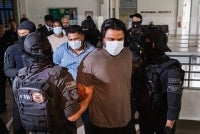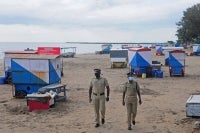We need empathy and data-driven justice, not just anger
NATHANIEL TAN
There’s a great deal of anger surrounding the Sam Ke Ting case, where eight teenagers riding modified bicycles (basikal lajak) lost their lives in a road accident.
From the little I’ve seen so far, most people seem to be angry that Sam was convicted and given a six year jail sentence despite some findings that she was not in any way negligent or culpable in the way she was driving.
Some people are angry about how she allegedly caused the death of these 8 teenagers, and believe that the court sentence is appropriate.
I think the kind of discourse we should aspire to surrounding this case should prioritise empathy over anger, and consider how we can avoid such deaths in the future.
I understand why people are angry - there is a lot to be angry about. However, our anger should not overflow to the point where we are doing more harm than good.
Some people angrily called for the parents of the teenagers to be punished instead, saying that they were the ones to blame.
I think a lot of responsibility can be ascribed to many different parties in this case, but there’s something that doesn’t feel quite right to me about calling for more anger or punishment towards parents who have already lost their child. Perhaps a little bit of sensitivity would go a long way.
Coming back to the case, the first thing we should perhaps acknowledge is that none of us were likely to have been present at or witness to the incident itself.
It is healthy for us to admit this early on, and be aware that we are likely to be making judgements based on second hand information.
I am not sure if a detailed account of what happened (according to documented court proceedings, for example) is available, but I have yet to come across any that give a detailed, reliable account of what happened that night.
The few facts that seem to be undisputed are: a group of teenagers were riding these basikal lajak, it was about 3am in the morning, and Sam Ke Ting was driving there.
Beyond that we can perhaps theorise a spectrum of possibilities regarding what happened, with two potential ends of the spectrum.
On one end of the possibility spectrum, Sam Ke Ting was somehow driving recklessly and/or negligently, thus causing the death of the teenagers.
In most circumstances, someone is determined to be driving recklessly if they have done or are doing something that compromises their ability to drive properly and safely - for instance, drinking alcohol, using one’s phone while driving, driving past the speed limit, and so on.
On the other end of the possibility spectrum, we can posit a scenario where Sam Ke Ting was more or less driving ‘flawlessly’ on her part, and came across the teenagers in a way that was completely unexpected and practically impossible to prepare for.
I suppose an example in this vein would be say, me driving down a curved road with no ability to see what is beyond the curve, and having a group of cyclists cycling down the wrong side of the road from the opposite direction at breakneck speed, leading them to crash into me before I had time to react.
Once again, the most important thing here is: very few people are likely to have the full, accurate picture of what happened that night. Without such data, we should be wary of jumping to conclusions as to where what actually happened falls on the spectrum above.
The only established fact regarding this seems to be the initial magistrate’s finding that Sam was not found to have been driving recklessly.
News reports do not seem to cite investigations or anything similar that formed the basis of the magistrate’s conclusion, but the conclusion itself seems to have been widely reported.
I suppose many in the public thus question the High Court’s grounds for coming to such different conclusions from the magistrate’s court.
I am sure there are many issues here for lawyers to discuss, and I am not a lawyer.
As someone whose work involves public relations however, I think it is fair to say that this has become an issue of considerable public interest.
Like many such issues nowadays, it has become highly polarising as well. In Malaysia, there is the added dimension where many issues also become racialised. So far however, it is good to see that people are not divided purely or maybe even primarily along racial lines in this issue.
The other pattern that can be observed in this debate here is how once again, people tend to choose a side quite quickly, and then double down on it. They dig their heels in, ramp up the anger levels, and get into huge fights with others over the matter.
Generally, all of this is seldom helpful.
In the case itself, we should all help to ensure that Sam Ke Ting is treated justly for what she did or didn’t do that night. The exact facts of the case matter, and the authorities should emphasise providing those facts and the basis of their judgements with the utmost transparency. If they have erred somewhere, we hope they will prioritise righting wrongs instead of protecting egos.
We should also always speak about the relatives of the teenagers who passed away with the utmost sensitivity, and empathy for their loss, whatever their shortcomings may or may not be.
Lastly, we should be thinking about how to avoid similar deaths in the future.
There is a lot to understand regarding the basikal lajak phenomenon. If we simply treat the matter as a bunch of unruly kids (or their parents) who need to be taught a harsh lesson, this may not be a sufficient long term solution.
We should be thinking hard and carefully investigating why it is these kids engage in such risky behaviour, whether and how we can nudge them towards being involved in different types of activities, and how to meet the unmet needs they have that drive them to this behaviour.
Upholding justice and protecting the sanctity of life should be our priorities always.NATHANIEL TAN is a strategic communications consultant. Twitter: @NatAsasi, Email: nat@engage.my. #BangsaMalaysia #NextGenDemocracy.
Download Sinar Daily application.Click Here!














